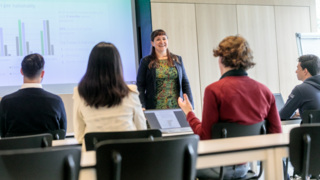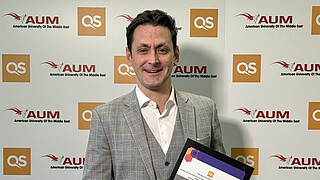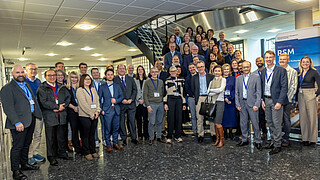The award-winning paper’s authors propose a new student assessment methodology for unstructured and semi-structured assignments, such as essays and presentations. HAPP combines the strengths of rubric-based grading, comment banks, and holistic assessment into a streamlined workflow. This recognition by the Academy of Management highlights the thoughtful work that went into developing HAPP. Dr Lee’s co-authors are Daan Peeters, Judith Auer, Dr Bas Giesbers, and Dr Moritz Appels.
Optimising student assessment
This method aims to provide an efficient and effective approach to the creation of high-information feedback and fair assessment to optimise the positive impact of assessment on students’ learning and development. The HAPP approach uses the grader’s input on a relatively detailed grading form to compute the student’s scores on a conventional rubric and to aggregate a detailed feedback message by leveraging a comment bank.
Dr Lee’s team tested the key tenants of the approach in two undergraduate business courses. They found that students consider feedback from HAPP to be of higher quality and fairer than feedback drawn from a conventional rubric. For graders, the authors found that HAPP provides greater consistency, while the time required to grade is comparable to grading with a rubric. The paper finally discussed how open questions can be addressed and how this study could inform future research on assessment.
The HAPP web application will launch for Erasmus University and RSM faculty in late August. Educators outside of Erasmus University Rotterdam can request a copy of to the Google Apps Script implementation of HAPP using this form or by emailing happ@rsm.nl.
Dr Colin Lee
Dr Colin Lee’s research lies at the intersection of human resources, organisational behaviour, industrial and organisational psychology, and career studies. His research in RSM’s department of Organisational and Personnel Management leverages recent developments in data extraction, normalisation, and processing to provide insights into how people can be matched to work and to develop tools for the dissemination of academic knowledge in his fields of interest



